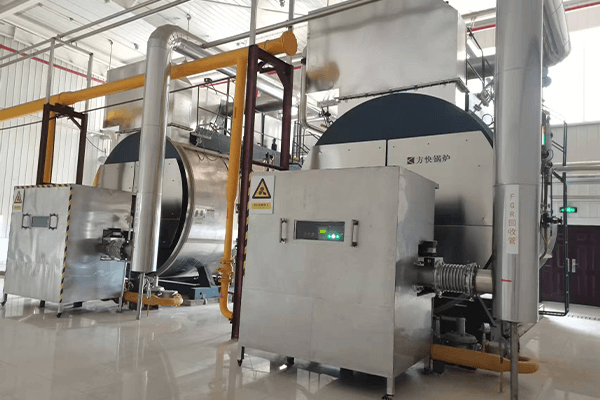Gas Boiler Vs. Electric Boiler. Why gas deliver high-efficiency heat at a fraction of the cost—unlock the secrets behind their lower per‑kWh price compared to electric systems!
When choosing a heating system for industrial or commercial applications, operating cost often tops the list of decision criteria. At first glance, electric boilers appear nearly 100 % efficient: electrical energy is converted directly into heat with minimal losses at the boiler itself. Yet the true cost of delivering “useful heat” must account for every step in the energy supply chain. In practice, modern oil‐ and gas‐fired boilers routinely outperform electric boilers on a per‐unit‐heat basis—here’s why.
1. One‐Step Conversion vs. Multi‐Step Losses
Oil and gas boilers burn fuel directly within the combustion chamber. Advanced condensing models can achieve thermal efficiencies of 85 %–95 % (or even higher) by capturing exhaust‐gas latent heat and maximizing flame‐tube heat transfer. Fuel’s chemical energy → combustion heat → water/steam is essentially a single, highly optimized process with relatively small stack and jacket losses.
By contrast, electric boilers rely on centralized power generation and grid delivery. Even if the local resistance‐heater in the boiler converts electricity to heat at nearly 100 % efficiency, upstream conversion losses are unavoidable:
-
Generation losses: Most power plants (coal, natural gas, nuclear) convert thermal energy into mechanical and then electrical energy with only 30 %–60 % efficiency (often averaging around 40 %).
-
Transmission and distribution losses: The electrical grid loses about 5 %–10 % of generated power en route to end users.
When combined, these losses mean that only roughly 35 % of the original fuel’s chemical energy finally becomes heat in an electric boiler.
Electric Boiler Cases
2. Fuel Pricing Dynamics
-
Natural gas and fuel oil markets generally offer more stable, lower per‑unit‐energy prices compared to electricity, which must cover generation, transmission, distribution, and various regulatory surcharges.
-
Bulk fuel contracts for commercial users can further reduce gas/oil boiler fuel costs through negotiated rates, off‑peak delivery, and hedging strategies.
Customized high-efficiency gas steam boiler
3. Lifecycle Impacts and Carbon Considerations
While electric boilers may be favored when on‑site zero emissions or renewable energy sourcing is mandated, their overall “well‑to‑heat” carbon footprint can still exceed that of a high‑efficiency condensing boiler running on natural gas—unless the electricity is sourced entirely from renewables or nuclear.
Conclusion
In summary, oil‑ and gas‑fired boilers provide a near‑direct conversion of chemical energy to heat in a single, tightly controlled process with modern units achieving up to 95 % thermal efficiency. Electric boilers, although seemingly perfect at the point of use, incur substantial upstream energy losses (generation and transmission), yielding a much lower net efficiency. Consequently, unless electricity is extraordinarily cheap or generated from zero‑carbon sources, an oil or gas boiler will deliver useful heat at a significantly lower operating cost.
Get your best price
Quickly compare 3 FREE quotes
- Engineer quick quote
- The overall delivery speed is fast
- Financial choice
- Low installation costs and cost savings
25 years+ of boiler R&D
More than 20 innovative technologies


